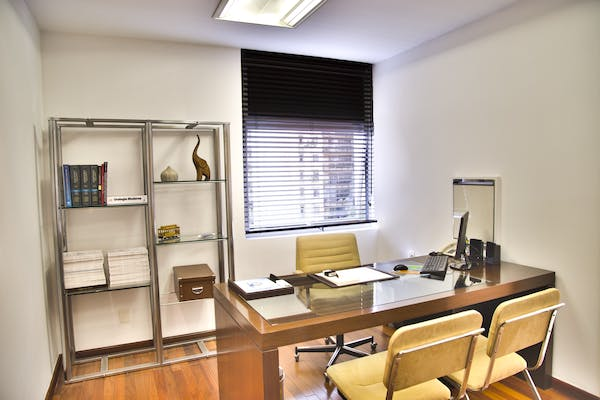There’s nothing quite like the modern, luxurious appearance of genuine hardwood floors. While other materials like laminate and cork may attempt to mimic its visually pleasing characteristics, hardwood floors posses a unique look look like no other. It’s important to note, though, that hardwood floors are susceptible to fluctuating humidity levels. So if your office or workplace features this stylish flooring, keep reading to learn how you can protect it from humidity-related damage.
Although you can’t see it, water is all around us in the form of air-borne moisture vapor. The term relative humidity (RH) is used to describe the maximum amount of water vapor a given section of air is capable of holding at its current temperature. In other words, RH is the amount of moisture vapor in the air. Environments with a high relative humidity are characterized with higher concentrations of moisture vapor, whereas environments with a low humidity humidity have less moisture vapor in the air.
So, how does air-borne moisture vapor impact hardwood floors? Wood – whether it’s a desk, table or floors – is hygroscopic, meaning it expands and contracts depending on the surrounding humidity levels. Hardwood floors contain microscopic pores which absorb moisture in humid environments and release moisture in dry environments. Some expansion and contraction is perfectly normal and should cause no reason for concern. However, prolonged exposure to excessively dry environments can take its toll on hardwood floors, causing major (and costly) damage.
Exposure to dry air will cause hardwood floors to contract. Going back to the basics of high-school physics, cold temperatures causes things to contract, whereas warm temperatures causes things to expand. This principle holds true when talking about humidity and its impact on hardwood floors. It’s not uncommon for hardwood floors to develop small but noticeable gaps between the planks as a result of the excessively dry air. If the humidity remains low, the floors may separate or even crack.
Of course, dry air is particularly problematic during the winter season, as offices use central heating to maintain a comfortable temperature. The warm air is less dense, however, meaning it’s able to hold less moisture.
You can protect the hardwood floors in your office or workplace by installing a commercial-grade humidifier. It will release additional moisture vapor into the air as needed, maintaining a suitable humidity for hardwood floors and other objects made of wood.





